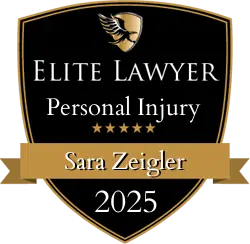If you are injured in an auto accident that another person caused, you are entitled to recover damages to compensate for your losses. But what happens if the other driver is not entirely at fault? Suppose your actions contributed to the crash. Are you still able to recover compensation?
All states have some version of contributory or comparative negligence law to cover situations where an injured driver shares some blame for the accident. A few states, such as Virginia, are very strict and do not allow a driver to recover anything if he or she is even one percent to blame for the crash. Other states allow drivers to recover damages reduced in proportion to their fault, even if they are 99 percent at fault. West Virginia is somewhere in the middle, allowing drivers who share fault to recover a percentage of their losses as long as they were not mostly at fault.
Under West Virginia’s modified comparative negligence law, a driver who is 50 percent or less at fault in an accident can recover damages reduced in proportion to their share of the fault. For example, a driver who suffers $50,000 in losses but is 20 percent to blame can collect damages from the defendant equal to 80 percent of their losses, or $40,000.
So, how can this affect your settlement with an insurance company? If you are trying to negotiate a settlement on your own, you can expect the insurer to use comparative negligence as a tactic to get you to accept a lower settlement. You may hear, “If we take you to court, a jury is likely to decide you’re not just 25 percent at fault. They’ll probably decide you’re more than 50 percent liable, and you’ll get nothing.” Faced with that kind of risk, and not knowing differently, you might feel lucky to get a 60 percent settlement.
Comparative negligence law is one area where professional representation can really help maximize your claim. An experienced auto accident attorney can evaluate your accident and give a reasonable estimate of your fault, so you can make a fully informed decision about whether a settlement offer is reasonable. If the insurance company’s offer is not reasonable, a seasoned trial lawyer gives you added leverage, because the insurer knows you’re prepared to go to court.
If you’ve been injured in a car accident in West Virginia, consult an experienced personal injury attorney at Kaufman & McPherson, PLLC.








